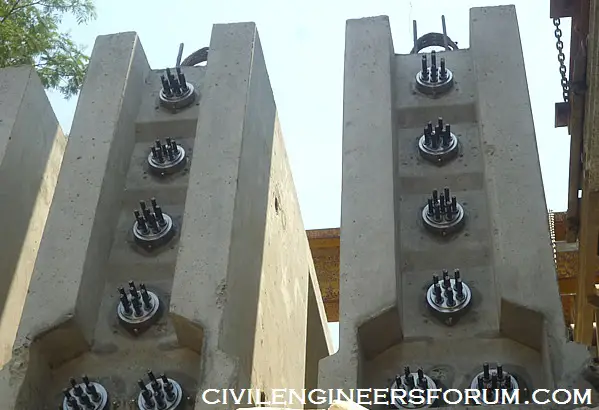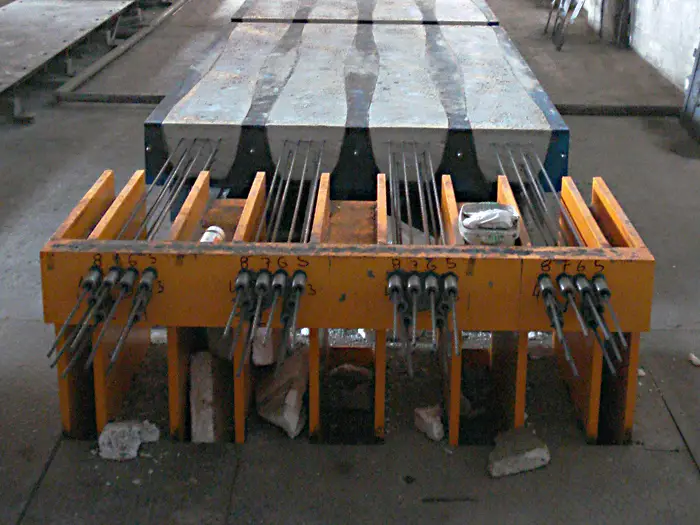There are many advantages and disadvantages of prestressed concrete which should be considered in structural design. The prestressed concrete pros and cons are listed below.
Advantages of Prestressed Concrete
There are 4 types of prestressed concrete available as discussed in our previous post. The advantages of prestressed concrete are as follows:
- Prestressed member is free from crack,so the resisting impact, shock and reversal of stresses is much more than reinforced concrete.
- It is more durable than reinforced concrete.
- The section of prestressed concrete member is less compared to RCC member as it utilizes the maximum tension and compression of concrete, so it reduces the cost.
- Prestressed concrete can be used in long spans as the section of member can be reduced.
- As the sections are lighter, they can be transported easily.
- The concrete diagonal tension can also be reduced.
- Shear resistance can be increased using curved tendons.


Disadvantages of Prestressed Concrete
The major prestressed concrete disadvantages include the followings.
- The major problem with prestressed concrete is that it needs specialized construction machineries like jacks anchorage etc.
- Advanced technical knowledge and strict supervision is very important.
- For concrete prestressing, high tensile reinforcement bars are needed which costs greater than generally used mild steel reinforcement bars.
- Highly skilled labor is needed for prestressed concrete constructions.
